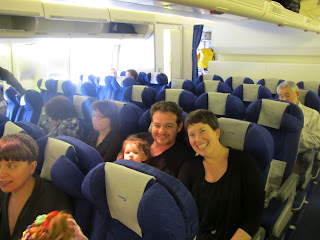My grandparents lived in Chisinau, Moldova. I was born and lived in Porto Alegre, Brazil.
I have recently traveled to both cities in 2012 and strangely noticed they share some similarities:
1) Dwindling Jewish community
Brazil never had a big Jewish community, but in Porto Alegre's state, Rio Grande do Sul, it has diminished from 12 to 7 thousand. Nobody is sure of why, but some point out that many young people are leaving. The same goes for Chisinau, that once had a huge, vibrant community, destroyed during the Holocaust and just now trying to get restructured. But it's still small.
Brazil never had a big Jewish community, but in Porto Alegre's state, Rio Grande do Sul, it has diminished from 12 to 7 thousand. Nobody is sure of why, but some point out that many young people are leaving. The same goes for Chisinau, that once had a huge, vibrant community, destroyed during the Holocaust and just now trying to get restructured. But it's still small.
2) Struggling economy
Brazil is one of the new leading countries in world economy, part of the "BRIC" (Brazil, Russia, India, China). But it has many political and social problems, and its vast resources are not yet being shared with most of the population. Chisinau is Moldova's capital, the poorest country in Europe. People are overwhelmed and tired by political corruption.
3) Urbanism
Both cities have sidewalks with cobblestones, twisted alleys, local and small grocery stores, old abandoned buildings, and a small (almost) international airport. The geography and architecture is a bit similar.
4) A predominant leftist ideology
Leftist politics have been popular in Porto Alegre for a long time, as well as Chisinau, which has a ruling communist party.
5) Atmosphere
No, not the quality of air. It's rather something you feel and see. People walking in the streets, cars, stores, buildings, humidity, heat, cold. I don't know if I'm dreaming of all these connections, but to me they seem true.
 |
| CHISINAU |













